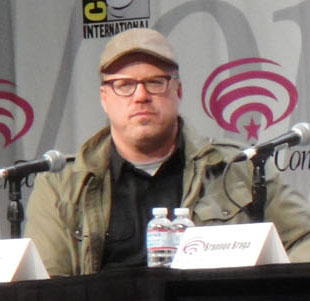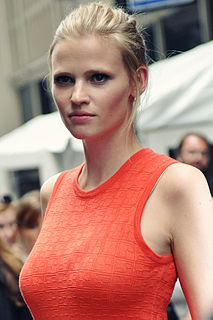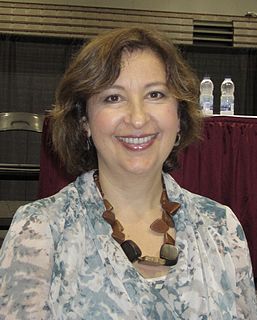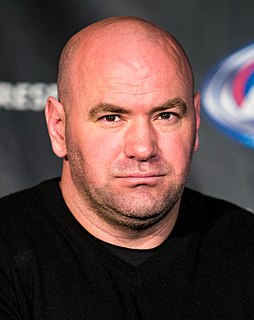A Quote by Don McLean
Everything has become very corporate and very careful. Before we had a real democracy going and there were a lot of freedoms and now there's this terrorism thing that everybody's focused on, which is really a boondoggle in my opinion. It's just an excuse to clamp down on people's free speech. And corporations intimidate people and everybody's gotten intimidated and that's really what it is, and they just keep going along. It's almost like - a little bit like that Charlie Chaplin movie, Modern Times, or 1984, Orwell
Quote Topics
Almost
Along
Become
Before
Bit
Careful
Chaplin
Charlie
Corporate
Corporations
Democracy
Down
Everybody
Everything
Excuse
Focused
Free
Free Speech
Freedoms
Going
Gotten
Had
In My Opinion
Intimidate
Intimidated
Just
Keep
Keep Going
Like
Little
Little Bit
Lot
Modern
Modern Times
Movie
Now
Opinion
Orwell
People
Real
Really
Speech
Terrorism
Thing
Times
Very
Were
Which
Related Quotes
3D needs a trained eye. It can't be done by everybody. People who just do 3D just for the sake of commercializing their movie another five or six percent and they don't know really how to do it, they should care how to do it better by bringing other directors and collaborators into their lives to help teach and instruct how you really make a 3D movie because it's not just like putting a new lens on a camera and forgetting it. It takes a lot of very careful consideration. It will change your approach to where you put the cameras. So, 3D isn't for everybody.
Because if you remember - and people forget this - the first two years of Game of Thrones everybody was going, "I don't know what's going on, but I really like it." And you really didn't know what to make of a lot of people, and now it's changed and people aren't really talking about that. Now it's like you're watching West Wing or Friends, you know the characters and you're like, "What in the world is going to happen?"
I was pretty self-conscious about my body because everybody kept going on like, "Oh, she's so curvy!" and "She's a plus-size model!" and this and that. It's all people would talk about - how I'm not very skinny. For a while, it made me pretty upset and I got a bit obsessive about it. I did a bunch of dieting and exercising and everything. I was losing weight, but I was still much bigger than everybody else. I didn't really see the point of making myself crazy anymore, so I kind of toned it down a little bit.
There have been times in my adolescence where I gave up. I was like, 'I'm just never going to be pretty. I'm never going to be like one of those people on the front of magazines.' It always seemed really strange to me that the projection of how people are in advertisements looked nothing like the people who were actually buying them. You know what I mean? I never understood that mismatch, and now I really start to see that the people you see in the media are a lot more like people actually are.
Now you've got people who don't really have the skills, because technology hides it, going out and putting these crappy singles out, and because that's all there really is, people basically eat it like hamburgers. It's become very, very commercialized. Which wouldn't bother me as much if people actually had talent. When I listen to something and the first thing I notice is that it's been turned into crap, I shut it off and throw it out the window of my car. Like it's the most offensive thing to me.
People don't realize that when Iranians marched against the shah, their goal was not to have a religious government take over. Everybody marched against the shah. There were communists and feminists and student groups. It's very much like what's going on in the U.S. now, with people following Trump. It's not that they want Trump. They want a radical change, is really what people are saying. With the shah, people were just so sick of the corruption they said just get rid of him.
A scary movie puts a lot of people, a mob, in one place. There are advantages to that because the panic runs through the audience. If it's a good movie, the fear jumps from one person to the next. You can find yourself screaming just because everybody around you is screaming. There's a real atmosphere of terror. It's also visual, which means that you can't look away from this thing - it's happening. You're in the dark. It's like a nightmare. It's like a dream. It's very, very visual. It works on all those levels.
He [Charlie Chaplin] was always playing as if it were to the camera, if you've seen the live shots of him when he's going to an opening night or something like that. And the skills that he had were beyond my ability to throw together. You just couldn't really compete with him. He was too athletic at that.
I had a very down-to-earth product, my wrap dress, which was really a uniform. It was just a simple little cotton-jersey dress that everybody loved and everybody wore. That one dress sold about 3 or 4 million. I would see 20, 30 dresses walking down one block. All sorts of different women. It felt very good. Young and old, and fat and thin, and poor and rich.




































